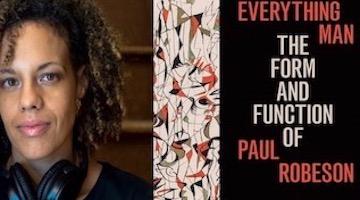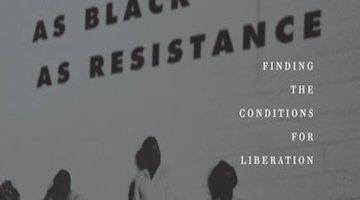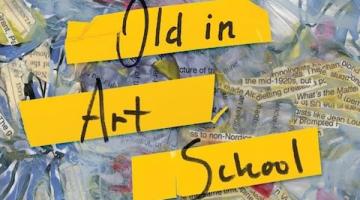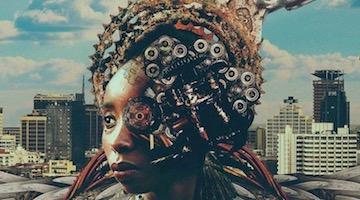“I hope readers consider whether we need to reassess Black women’s relationship to violence.”
In this series, we ask acclaimed authors to answer five questions about their book. This week’s featured author is Kali Nicole Gross. Gross is Martin Luther King, Jr. Professor of History at Rutgers University. Her book is Hannah Mary Tabbs and the Disembodied Torso: A Tale of Race, Sex, and Violence in America.
Roberto Sirvent: How can your book help BAR readers understand the current political and social climate?
Kali Nicole Gross: Hannah Mary Tabbs and the Disembodied Torso tells the tale of a vicious love triangle gone wrong in Philadelphia, at the same time that it maps the historical chasm between the city’s Black community and its law enforcement officers. Specifically, the book shows how violence and racial profiling were historically considered a routine part of policing; Black folks and newly arrived immigrants were disproportionately subject to unjust stops, arrests, and trumped-up criminal charges. The book also explores how these practices left the Black community especially vulnerable to violent and notorious offenders—or, put another way, my research shows that everyday Black people were caught between the proverbial rock and hard place when it came to dealing with crime. They could not expect unbiased police responses, so they tended not to rely on them, often choosing to handle matters themselves or to simply suffer crime and assaults without justice or protection because calling the police might result in even worse outcomes. All of these issues speak directly to ongoing discourses surrounding race, brutality, and the criminal justice system.
What do you hope activists and community organizers will take away from reading your book?
I am in awe of the work and enormous sacrifice that activists and community organizers make—socially, politically, and intellectually. Mainly, I want to be in conversation with them and also to help support efforts to halt violence and mass incarceration, as these issues adversely and disproportionately impact Black people. In service of that goal, I took pains to demonstrate the historical legacies of anti-black police violence but also to chart its connection to intraracial violence in Black communities; I hope going forward that whenever we protest racist police brutality we simultaneously call attention to the myriad ways that it harms individual victims and their families and spotlight its damaging repercussions for the Black community writ large.
We know readers will learn a lot from your book, but what do you hope readers will un-learn? In other words, is there a particular ideology you’re hoping to dismantle?
I am hoping that readers continue to push back against the notion that Black people have to be complete saints in order to have their humanity acknowledged. In part, focusing on a black woman such as Hannah Mary Tabbs was my attempt to meet this goal. At a bare minimum, she engaged in adultery, domestic violence, and bullying. During the murder investigation, authorities encountered scores of Black people—including Hannah Mary Tabbs’s husband and niece—who offered evidence against her. They spoke of being physically brutalized by Hannah Mary Tabbs and routinely threatened and intimidated. By all accounts she was a neighborhood terror, and a number of folks were convinced that Gaines (the murdered man) was not her first victim.
At the same time, Hannah Mary Tabbs grew up in a world where Black women’s bodies had never been their own—to borrow words from legendary Civil Rights activist Fannie Lou Hamer. Tabbs was born in Anne Arundel County, Maryland, in the antebellum era and according to existing slave narratives, the area was home to a large and infamous slave-owning family—a family known for being exceptionally cruel and for starving enslaved Blacks. Tabbs also came into her teenage years during the nation’s bloody Civil War—a period where Black women and girls were raped with impunity. In Tabbs’s case there is significant evidence that her “niece,” a young mulatto, was actually her daughter, though the circumstances of the girl’s conception are murky.
The point is not to excuse Hannah Mary Tabbs’s violence but rather to understand her as deeply flawed, boundlessly complicated, and thusly, utterly human and worthy of historical study.
Who are the intellectual heroes that inspire your work?
Of all of the questions, this is probably the hardest. There are so many scholars, writers, activists, and artists that have influenced my work. Some names that come to mind—folks who educate and inspire me are historians such as Mary Frances Berry, Deborah Gray White, Tera Hunter, Robin D. G. Kelley, Elizabeth Brooks Higginbotham, and Nell Painter. But also, I have been deeply affected by the lives and work of historical figures such as Harriet Tubman, Ida B. Wells-Barnett, Frederick Douglass, and W. E. B. DuBois, as well as folks such as Gloria Richardson and Fannie Lou Hamer, and also women like Emmett Till’s mother, Mamie Till-Bradley, who took a mother’s worst nightmare and ignited a movement that changed the face of this nation. Believe it or not, Hannah Mary Tabbs has also been a kind of muse for me. That said, I have been enormously inspired by the work of literary critics and theorists like Saidiya Hartman, Hazel Carby, Barbara Christian, Michel Foucault, bell hooks, and Frantz Fanon—I find their writing really rich and generative. I have found work from Toni Morrison and Gayl Jones equally powerful and I have been profoundly moved by the poetry of DaMaris B. Hill.
In what way does your book help us imagine new worlds?
I hope that Hannah Mary Tabbs and the Disembodied Torso also leads readers to consider whether we need to reassess Black women’s relationship to violence. Much of the existing historical scholarship, my own work included, has largely regarded violence as wholly negative—usually a mark of a Black woman’s undoing. There is without a doubt ample evidence to support this, but there are also records to show some Black women embraced violence and brutality and made it work for themselves. Admittedly, Hannah Mary Tabbs’s usage is largely nihilistic, but she nonetheless managed to use it to grant herself pleasures and a measure of social autonomy that was largely denied Black women in her era. For me, she exists as both an exception and a norm and also as a troublesome figure; she raises disturbing questions about what kind of access Black women can achieve for themselves when they throw mainstream notions of morality and righteousness aside.
Roberto Sirvent is Professor of Political and Social Ethics at Hope International University in Fullerton, CA. He also serves as the Outreach and Mentoring Coordinator for the Political Theology Network. He’s currently writing a book with fellow BAR contributor Danny Haiphong called American Exceptionalism and American Innocence: The Fake News of U.S. Empire.















